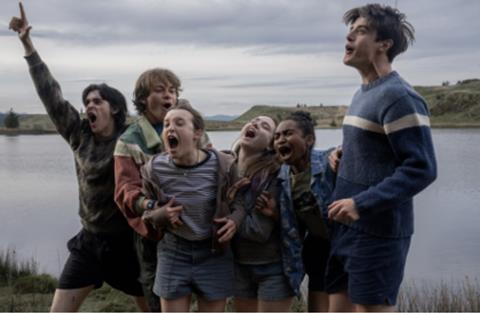
The number of feature films applying for BFI certification with a production budget under the £20m mark has increased by 27% year-on-year across the first six months of 2025.
A total of 417 films under £20m applied for BFI certification in the first six months of 2025, versus 328 in 2024.
A marked increase in the number of films applying for certification under the £20m level can be seen from November 2024 onwards, according to research from law firm Reed Smith, drawing on data from the BFI. This chimes with the Independent Film Tax Credit (IFTC) being officially greenlit by the UK government in October 2024, with the BFI accepting certifications from October 30, 2024.
In November 2024, 59 features under the £20m mark applied for the cultural test. This is up from the 52 that applied in the same month in 2023, and is also up from the 43 that applied in October 2024 and 36 in September 2024.
In December 2024, this figure increased to 62 (versus 38 in 2023) and continued to increase to a high of 86 in April 2025 (versus 61 in April 2024).
In order to access expenditure credits in the UK, films must apply for certification from the BFI.
The IFTC, officially known as the enhanced audiovisual expenditure credit for low-budget films, is aimed at films with a total core expenditure, or production budget, of up to £15m. They can now benefit from an enhanced credit of 53%, which equates to an actual relief of just under 40%, on up to 80% of qualifying expenditure.
Those productions with a total core expenditure of up to £23.5m can also qualify for the IFTC; however, they can only claim the IFTC up to a maximum of 80% of £15m of the UK qualifying spend. Policymakers have identified £23.5m as the tipping point where it becomes more advantageous to claim the standard rate of AVEC on a film’s total core expenditure.
Films to shoot in the UK in the first six months of 2025 under the £20m mark include Sophie Heldman’s Scotch Verdict, George Jaques’ Sunny Dancer and Ashley Walters’ Animol.
May 2025 did see a dip in films under £20m applying for certification compared to May 2024, with 57 films under the £20m mark applying compared to 60 in May 2024. However, June 2025 was back up to 69, compared to 59 in June 2024 and 61 in June 2023.
The BFI notes that April always sees a spike ahead of the end of the financial year, which leads to a dip in May. The dip compared to the surrounding months in 2025 and compared to 2024’s May level could, according to Henry Birkbeck, a lawyer in Reed Smith’s entertainment and media industry group, also be attributed to a sense of uncertainty that arose more widely in the industry in May.
“It could have been a knock-on from the US administration’s announcement that it was going to impose tariffs on the film sector in America and on films made outside the US.
“May is one of the months of the year where historically there is a bit less activity [for certification], when people are in Cannes selling and promoting their films.”
Applications from films over the £20m mark have also seen an increase in the first six months of 2025 – 33 films put in for certification, compared with 28 in the same period of 2024, an 18% increase. Bigger budget films to shoot in the first six months of 2025 in the UK include Marvel’s Avengers: Doomsday for Disney, which began filming in March, and Sony and Amazon MGM’s Masters Of The Universe.
Overall, Birkbeck feels this data suggests the UK sector is on a positive trajectory. “The film industry needed some good news, after 2023 in particular,” noted Birkbeck. “The IFTC is a happy story to sell.
“What caused 2023 to be a contraction in the film industry, the strike issues and AI, continue to be an area of uncertainty. But that’s not stopping people from getting films made at the moment, which is good.”
























No comments yet